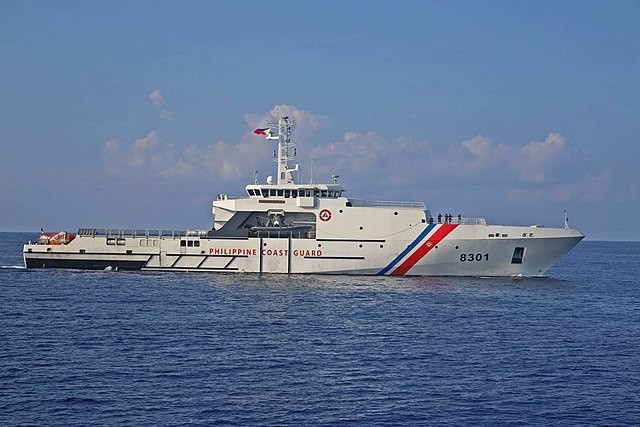The Philippine military deployed naval and air forces last week to shadow a Russian submarine traversing the South China Sea near the country's western coast, sparking concern amid heightened tensions in the contested waters. The 74-meter-long vessel, armed with missiles capable of traveling 12,000 kilometers, was identified en route to Vladivostok after participating in joint exercises with the Malaysian navy, according to Jonathan Malaya, assistant director-general of the Philippine National Security Council.
The submarine was detected about 80 nautical miles off Mindoro province on Thursday and surfaced due to adverse weather conditions. Despite its claim of "innocent passage" through the Philippines' exclusive economic zone (EEZ), the presence of the submarine raised alarm in Manila.
"All of that is very concerning," Philippine President Ferdinand Marcos Jr. told reporters. "Any intrusion into the West Philippine Sea, of our EEZ, of our baselines is very worrisome. So, yes, it's just another one." The president used the term "West Philippine Sea," the official Philippine designation for portions of the South China Sea.
Navy spokesperson Roy Vincent Trinidad described the vessel as "very unique" but stated the incident was "not alarming." However, he acknowledged the surprise caused by the submarine's presence.
The South China Sea, a vital global trade route through which more than $3 trillion in goods pass annually, has been the center of increasing territorial disputes. China claims sovereignty over nearly the entire sea, a position rejected by an international tribunal in favor of the Philippines. Other nations, including Vietnam, Malaysia, and Indonesia, have also contested China's expansive claims.
Recent years have seen escalating confrontations, particularly between Chinese and Philippine vessels. On Monday, the Philippine Coast Guard reported that a Chinese military helicopter flew perilously close to Filipino fishing boats at Iroquois Reef, an area under dispute. Commodore Jay Tarriela, a spokesperson for the Coast Guard, called the incident a "dangerous act of harassment." In response, two Philippine patrol ships were dispatched to protect local fishermen.
Meanwhile, Manila's detection of the Russian submarine has fueled concerns over the expanding military cooperation between China and Russia. The two nations have intensified joint military drills in recent months, alarming neighboring countries and Western powers. South Korea, for example, scrambled fighter jets last week when five Chinese and six Russian military aircraft entered its air defense zone.
The Philippines' actions reflect growing vigilance in the face of these developments. The U.S., a key ally, has also increased its surveillance and military presence in the region. In September, the U.S. military stationed troops and mobile rocket launchers in Alaska following reports of Russian and Chinese military activity near American territory.




